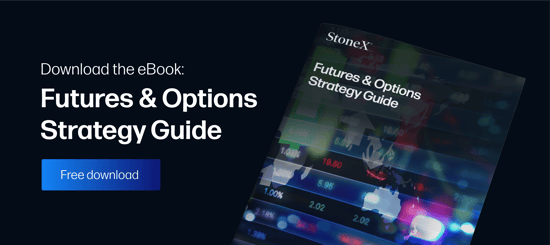It is a common misconception that traders and investors are the same. Although it is true that both may pursue profits by buying and selling futures contracts, the manner in which they pursue this goal varies greatly. Read on to learn more about the trading versus investing dichotomy.
Time Frame and Expectations Are Key
Perhaps the single largest difference between traders and investors is how each views time. Essentially, it boils down to trade duration and investment horizon.
Trade Duration
Trade duration is the length of time during which a position is open in the market. Active traders measure the duration of their open positions by seconds (for those pursuing scalping strategies), minutes, hours, days, and weeks. In doing so, traders aim to execute many positive expectation trades and take an active, high-volume approach to the markets.
Investment Horizon
According to Investopedia, an investment horizon is “the total length of time that an investor expects to hold a security or portfolio.” Investors typically measure a position’s horizon in terms of months, years, and decades. Subsequently, investors are often labeled “passive” because they are far less active in the market than traders.
Goals of Trading vs. Investing
The duration versus horizon tradeoff is the key element in the trading versus investing argument. In fact, it is the primary tenet driving the objectives of each discipline:
Trading
The goal of trading is to realize a long-run profit by executing many positive-expectation, short-term trades. This is accomplished by identifying opportunities on compressed time frames and selecting trades with favorable risk versus reward payoffs. With these goals in mind, many traders rely on technical analysis as their primary decision-making mechanism. By studying intraday, daily, and weekly price action, traders can profit from short-term volatility while limiting exposure to broader systematic risk.
Investing
Contrary to trading, the primary objective of investing is to open a small number of highly profitable positions in the intermediate to long term. To accomplish this goal, investors evaluate market fundamentals in an attempt to catch macro trends. In identifying an asset’s intrinsic value with respect to fundamentals such as social behavior, geopolitics, or economic cycle, investors can take longer-term, directional positions in the market.
Trading vs. Investing: Which Is Right for You?
For many people participating in or considering entering the futures markets, the trading versus investing discussion can cause confusion and angst. Should I trade? Should I invest? Can I do both? If this sounds like you, then perhaps a quick look at the pros and cons will help:
| Discipline | Pros | Cons |
|---|---|---|
| Trading | Involves daily activity, limits systematic risk, reduces margin requirements, requires minimal capital outlay. | Tests trader discipline, can be mentally and physically exhausting, involves increased transaction costs, requires extensive time allocation. |
| Investing | Requires minimal time, reduces impact of short-term volatility, requires lower transaction costs. |
Involves increased capital requirements, entails greater exposure to systematic risk, tests patience. |
At its core, the decision to become a trader or investor is a largely personal one. Here are several questions to ask yourself when pondering the trading versus investing quandary. If nothing else, they will shed some light on which course of action may be suitable for your unique situation:
- Trading
- What is my experience level and expertise?
- What are my capital and time resources?
- Am I technologically proficient? Can I operate a trading platform?
- Do I have a viable strategy for short-term trading?
- Investing
- What is my patience threshold?
- Do I have the discipline to hold the line when faced with adversity?
- How much capital am I willing to dedicate to an investment?
- Can I afford to forego small profits and hold positions until they reach maturity?
Want to Learn More About Trading and Investing?
If you’re interested in hearing more about trading versus investing, a StoneX market professional can help. With decades of financial industry experience, our team has seen it all on the trading and investing fronts. Don’t wait―begin building your powerful financial plan via a free consultation with a StoneX broker.



